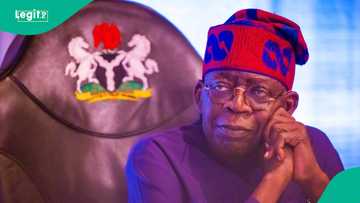CBN Says 95% of Bank Debtors Took Loans From Microfinance Banks in 2024
- New data from the CBN has shown that over 95% of loans were gotten from microfinance banks in 2024, leaving the commercial banks to scramble for 5%
- The data also shows a year-on-year decline in loans, reflective of the increased interest rates from the CBN policies
- Deposit Money Banks recorded just 155 loans in September 2024, a 33.5% drop from 233 collected the previous month.
Legit.ng journalist Ruth Okwumbu-Imafidon has over a decade of experience in business reporting across digital and mainstream media.
New data from the Central Bank of Nigeria (CBN) shows that 95.66% of bank loans in 2024 originated from Microfinance banks.
The data, which captures loan transactions in September 2024, confirm the significant influence of microfinance banks for individuals and small businesses.
From a total of 6,537 debtors across all credit types, Microfinance banks pooled an impressive 6,253, the PUNCH reports.
This figure marked a slight decline from the 6,573 loans recorded for MFBs the previous month and a bigger decline Year-on-Year from 8500 recorded in September 2023.

Source: Getty Images
In September 2024, the total number of debtors across all creditor types was 6,537, a decrease from 6,916 in August 2024 and 9,071 in September 2023. This marks a 28% year-on-year decline, reflecting the effects of rising borrowing costs and a more restricted credit market.
Increased interest rates equal reduced loans
The year-on-year decline in debts may not be unconnected with the rising interest rates. The CBN Governor Yemi Cardoso consistently raised interest rates in 2024, closing the year with interest rate of 27.5%.
The Monetary Policy Committee (MPC) has explained that the consecutive hikes are aimed at curbing the rising inflation rate, but inflation does not seem affected by the increase so far, as headline inflation closed the year at 34.80%.

Read also
Analyst reacts as Tinubu's government moves to include illegal activities in GDP calculation
This increase made loans more expensive and could have discouraged borrowings at individual and corporate levels, leading to a drop in borrowings from financial institutions.
Borrowing from loan apps
There are suggestions that the rise in the popularity of digital loan apps may also be contributing to the reduced market share of traditional DMBs.
These apps offer their loan services quickly and without any hassles or collateral. Despite their high interest rates and sometimes unethical recovery practices, they continue to attract borrowers.
Within the core banking space, loans from Deposit Money Banks continue to decline significantly. In September 2024, only 155 loans were collected from DMBs, a 68.9% drop from 498 collected in September 2023, and a 33.5% drop from 233 collected the previous month.
Other numbers in the report
In September 2024, the total value of loans across all debtor types reached N118.73 billion, marking a 4.2% increase from N113.89 billion in September 2023.

Read also
List of major 2025 prophecies by Adeboye, Apostle Selman, Ayodele, Iginla, other Nigerian pastors
However, this also meant a 12.8% decrease Month on Month from N136.21 billion in August 2024.
Individual borrowers contributed N22.2 billion to this total, which was a sharp drop from N39.61 billion in August 2024 but a notable increase from N14.08 billion in September 2023.
The 57.5% year-on-year rise in secured loans for individuals underscores their ongoing dependence on credit, even amid higher interest rates.
NDIC liquidates 87 microfinance banks
In related news, Legit.ng reported that the Nigeria Deposit Insurance Corporation (NDIC) had applied for a High Court order to liquidate 87 banks in Nigeria.
The application noted that the Central Bank of Nigeria (CBN) had already revoked the licenses of the said banks.
About 62 of the affected financial institutions were microfinance banks, while 25 were primary mortgage banks.
The CBN had revoked the licenses of about 80 financial institutions because they were not located, while the other eight banks embarked on self-liquidation.
PAY ATTENTION: Сheck out news that is picked exactly for YOU ➡️ find the “Recommended for you” block on the home page and enjoy!
Source: Legit.ng



